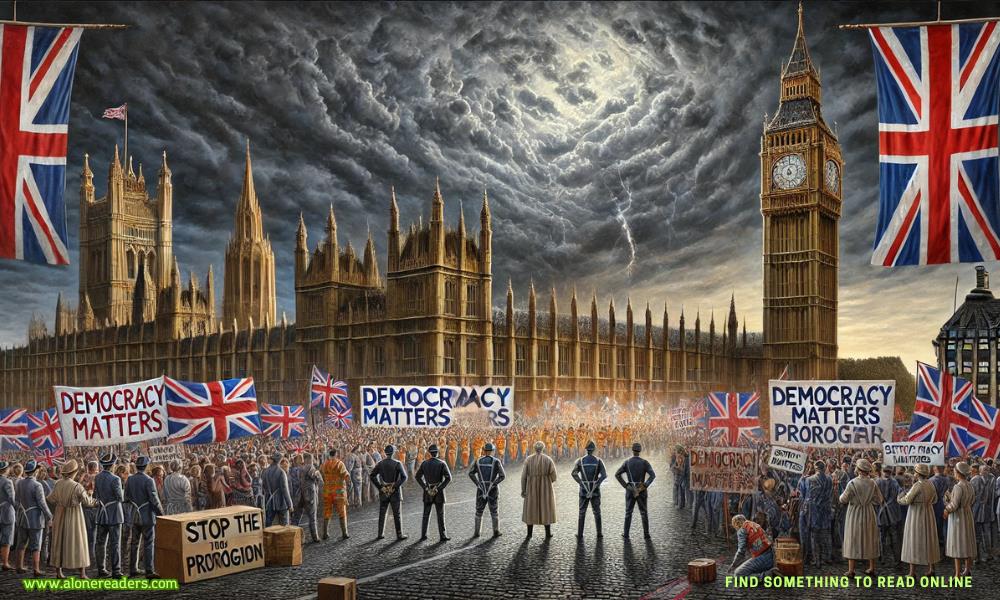
In 2019, Boris Johnson’s prorogation of Parliament became a lightning rod for controversy, igniting a heated debate about constitutional norms and the balance of power in the United Kingdom. At the height of the Brexit crisis, Johnson, then Prime Minister, sought to suspend Parliament for five weeks, ostensibly to prepare for a new legislative agenda. However, critics argued that the move was a deliberate attempt to stifle parliamentary debate and curtail scrutiny of his government’s Brexit strategy. This unprecedented situation raised profound questions about the functioning of the UK’s unwritten constitution and the principle of parliamentary sovereignty.
Prorogation is a routine mechanism used to end a parliamentary session, often lasting a few days to allow for preparation of a new Queen’s Speech. However, the 2019 prorogation was different in both its length and its timing. Coming just weeks before the Brexit deadline of October 31, it was seen by many as an attempt to silence MPs during a critical juncture in British politics. Johnson’s government insisted that the suspension was necessary for procedural reasons, but opposition leaders and constitutional scholars accused him of undermining democracy and acting in bad faith.
The matter escalated when two legal challenges were brought against the prorogation. In England, the High Court initially ruled that the matter was non-justiciable, meaning it was not within the court’s power to decide. However, in Scotland, the Court of Session ruled that the prorogation was unlawful, concluding that it was motivated by an improper purpose to stymie Parliament. These conflicting rulings set the stage for a landmark decision by the UK Supreme Court.
On September 24, 2019, the Supreme Court delivered a unanimous verdict declaring the prorogation unlawful and void. The court found that Johnson’s advice to the Queen to suspend Parliament was unlawful because it had the effect of frustrating or preventing the ability of Parliament to carry out its constitutional functions without reasonable justification. This ruling marked a significant moment in the history of UK constitutional law, reaffirming the principle of parliamentary sovereignty and the accountability of the executive to the legislature.
The political fallout from the Supreme Court’s decision was immediate and intense. Critics accused Johnson of overstepping his authority and behaving recklessly, while his supporters argued that the judiciary had overreached by intervening in what they saw as a political matter. The ruling highlighted the delicate balance between the different branches of government and the evolving nature of the UK’s unwritten constitution. Unlike countries with codified constitutions, the UK relies on a combination of statutes, conventions, and judicial precedents, leaving significant room for interpretation and controversy in times of political crisis.
Johnson’s prorogation of Parliament also brought into sharp focus the role of the monarchy in contemporary governance. The Queen’s approval of the prorogation, based on the advice of her Prime Minister, was a routine constitutional formality. However, the events of 2019 reignited debate about the symbolic and practical implications of the monarch’s role in government decisions, particularly when the advice given by ministers is later deemed unlawful.
The episode underscored broader questions about the resilience of democratic institutions in the face of political turbulence. For many, it highlighted the need for clearer rules and safeguards to prevent the misuse of constitutional mechanisms. Proposals for a written constitution have gained traction in some quarters, driven by concerns that the flexibility of the UK’s current system makes it vulnerable to manipulation by those in power.
In hindsight, Johnson’s prorogation of Parliament can be seen as both a symptom and a cause of the broader constitutional upheaval surrounding Brexit. The unprecedented challenges posed by the Brexit process exposed deep divisions in British society and tested the limits of the country’s political and legal systems. The 2019 prorogation became a defining moment in this period, illustrating the tensions between the executive, the legislature, and the judiciary.
While the immediate crisis was resolved by the Supreme Court’s ruling and the subsequent reopening of Parliament, the long-term implications of this episode continue to reverberate. It served as a reminder of the importance of vigilance in defending democratic norms and the rule of law. The questions raised by Johnson’s prorogation—about the limits of executive power, the role of the judiciary, and the nature of parliamentary sovereignty—remain relevant as the UK navigates its post-Brexit future.
Ultimately, the 2019 prorogation of Parliament was a pivotal moment in the UK’s constitutional history. It demonstrated both the strengths and weaknesses of the country’s political and legal systems, offering valuable lessons about the need for transparency, accountability, and the protection of democratic principles. Whether viewed as a constitutional crisis or a necessary test of the system’s resilience, it remains a landmark case with enduring significance for the governance of the United Kingdom.